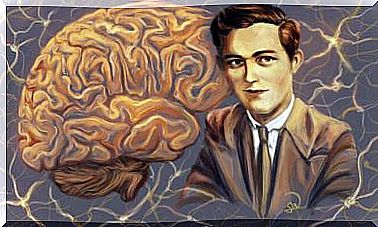Asthma And The Mind, A Close Link

The relationship between asthma and the mind has been discussed for a long time. This is because in everyday life it is very easy to notice that association. Most obvious is the link between a state of nervousness and an asthma attack. However, it is not very clear what science has found in this regard.
The question that arises is clearly the following: is there a true relationship between asthma and the mind, or is it an unsubstantiated myth ? Until just a few decades ago it was thought that the issue of the influence of emotions in asthma was just speculation. However, with the advances in science today, that connection is undeniable.
Science defines asthma as a complex syndrome, characterized primarily by inflammation and obstruction of the airways. It is the most widespread chronic disease in childhood.
It is estimated that at least 60% occur in children. Among the triggers, nowadays those of a psychological order are included. The relationship between asthma and the mind is undeniable.
Studies on the relationship between asthma and the mind
Dr. Zofel Marx and his colleagues carried out a study with asthmatic patients, to determine if, indeed, emotions influenced the disease. His research consisted of comparing the emotions of healthy patients and asthmatic patients to establish if there were any differences.
In the end, they concluded that asthmatic patients had more hostile attitudes, greater feelings of helplessness and more expressions of sadness, than healthy patients. To verify this, both groups were exposed to various stimuli and their reaction was observed. However, the emotional difficulties observed could be an effect of asthma and not its cause.
Despite this, these findings have been corroborated by other studies. It has been proven that up to 50% of asthmatics have depressive symptoms . Likewise, those who have these symptoms, or manifestations of anxiety, have more frequent attacks and visit doctors more. Similarly, the use of antidepressants reduces asthma symptoms.
A finding from the neurosciences
A study carried out at the University of Wisconsin-Madison established that there is a clear connection between asthma and the mind. The research carried out allowed to conclude that asthmatic processes are related to two areas of the brain that are closely related to emotions: the anterior cingulate cortex and the insula.
Professor Richard Davidson, director of the research, used magnetic resonance imaging to demonstrate this fact. To do this, he started with a group of six volunteers. They all suffered from asthma. This group was administered a series of substances that exacerbated the disease.
By observing the brains of the volunteers, it was found that the stimuli activated the anterior cingulate cortex and the insula. Both areas are strongly related to emotions. The research was published, but it is not considered conclusive due to the few patients studied.
A field of research that is still open
Science has already managed to establish a connection between asthma and the mind. What is not yet known is the extent of that link or the exact mechanisms that regulate it. What is clear is that psychological factors are determining factors in the course of this disease. A state of depression or anxiety exacerbates asthma flare-ups.
Dr. Antonio Cano Vindel, from the Complutense University of Madrid, points out that anxiety affects asthma in two ways. The first, generating episodes of agitated breathing or hyperventilation. This physiological state is present in various emotional events, such as crying, fear, stress, etc. In turn, Cano Vindel points out that any strong emotional event increases bronchoconstriction.
On the other hand, he points out that patients with asthma tend to have high levels of depression, sadness and anger, due to the same limitations that the disease poses. It has been proven that if these psychological states are treated appropriately, the prognosis of these patients improves significantly.
Therefore, there is a relationship between asthma and the mind; neither in this case nor in the case of other diseases, can we separate the organism from what happens in the brain. The old maxim is reaffirmed according to which for there to be a healthy body, the mind must also be healthy, and vice versa.









